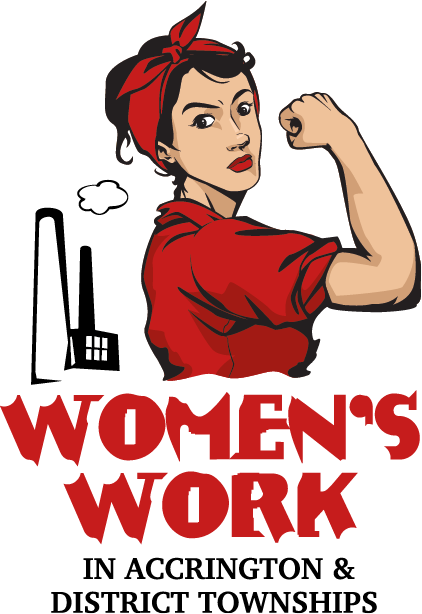I was born in on 10th of April 1940 and my full name is Fazal Jan Awan.
My dad when we came to live in England, we came in London. My dad worked there. When we move into Accrington in this town, my dad did not work, but me and my mother worked in Stanhill factory. They used to make pickle. So we both me and my mother were in that factory.
When I was little my mom and my mother has died, so my dad brought me into Pakistan. We started living with our grandmother. So we stayed there for four years and then we moved to England.
We used to live in a village in Pakistan, so we did not have any school in the village. So, I did not have any qualification there.
In Pakistan, there was a college and school, but it was in different town. So it was quite far. So, we did not go to school or college in Pakistan.
When we moved in here in this country, I did not go to college or school, so I did not have any qualification.
When first, we came here we came in London and we lived there for around three, four years, but I cannot remember the date or year, which year we came in or which year we moved. I moved into Hydburn, but (before that) I lived in London for three years and I worked there in a plastic factory and biscuit factory. We had moved from Africa and my old in-law’s family was living in London as well. Then we have moved into Accrington and always lived in here (since).
I just heard about the job. I went there and they interviewed us and then they gave me a job. It was a part-time job, evening job for four hours. It was a plastic factory and I used to put air in the bag and do small jobs in the factory.
There was a department for males as well. It was a separate department and there was a separate department for women as well.
I used to get a good wage, but never compared with the male wage, but I’m assuming that they used to get more than us.
Yes, he (my husband) was happy. I used to work in the evening and then he used to be at home to look after children and a because it was so expensive, living in London. He was even working. But it hard to manage and budgeting. So that’s why I started working as well.
So when I was working, [he looked after children when he was working. I stayed at home and look after children, and yes, he was happy that I am working.
I spent money on my children and at home, I bought something for my children and spent it on the home.
No, is never happen, anything like that. (racism). White people used to work there. English, people used to work there as well and never had any problem. I worked in that factory for around five months. Then I moved into another factory where they used to make biscuits. So I started working there. But I had a quite good experience in that factory. So never had any problem. I worked in the biscuit factory and it was a quite fast, work, it were fast-paced work. And I used to get really tired of packing the biscuits. So because I used to get very tired with that job, I left that job as well.
Even my manager said, you’re a lady who came from Africa, and you’ve worked really nice in here. So why are you leaving? So I said, because it’s a very busy job in here and I get really tired. So that’s why I’m leaving this job. So, I worked in the factory around for one year. I worked then and then I finished. This biscuit factory was also a part-time job.
I always worked part-time because my children were little and their dad used to look after them when I was working. So I always work part-time. I never faced any problem and never had any problem at work. So even people who were working there were my good friends. I was a good friend with them. So I never went to the union, I don’t know anything about that. So I had a quite good time. And I also worked in other factories as well in there (London).
I did couple of jobs in London and because when I did not like the job, any job, I used to leave and get another job, my friends used to make laugh with me. “Your husband always just collects paper from you for your job and you start and then you finish!” So, I did a couple of jobs in London then I moved in here and I started working in a factory in here. They (the factory) used to make pickle.
(interviewer: I think your son have told me you came in England in around in 1972. And if you are saying that you lived in London for five six years old, roughly you moved into this town around in 1979-1980.)
Yes, yes. I can remember around that time. I moved in here in this town. I did one job in here, in this town. I worked in a factory. They used to make pickle. We used to pack the pickle in the bottle and then they used to send it to Saudi Arabia. So I did that one job in a factory.
We were three ladies, Asian, ladies. We were working there and there was English ladies who worked there as well and men used to do a heavy jobs.They used to do heavy jobs, and we used to pack the pickle and masalas we used to pack in bottles as well. So there was men working as well, but they used to do heavy jobs.
I cannot remember my first wage and how much it was, but we used to spend our wage at home for shopping and that time, you used to get a (loaf of) bread for 10 pence. So, it was that cheap.
Even though the wage was less but things used to be very cheap. It was inexpensive shopping yes, it was inexpensive but we used to get bread for 10 pence so it was quite cheap with the wage as well, but nowadays when wage has increased but the prices have gone up as well. So that time prices was less as well. And we used to do a lot of shopping in small amount of money. We used to get full bags of shopping with a small amount of money, but now wages have increased, and prices have gone up as well compared to that time.
And I used to spend all my wages at home. We didn’t – at that time you didn’t use to put money in bank or anything. So whatever we get, cash wage, we used to spend at home. I have five six children and (I would) buy clothes and do a food shopping for children. And when my children look back, at the old picture, they said you used to put us in dirty clothes and I said whatever I had, whichever I could afford that time, I spent on you.
No, the factory I have worked with. I never had any problem (with racism or sexism). You used to get wage on time, everybody used to get paid on time, every Friday. So we never faced any problem or never had any problem. Oh, nothing happened in that factory.
I only did a job in a factory and then I, for a small time, I had a shop in Blackburn selling clothes, so I only work there a few months and then we stopped there because my husband, well, he my husband got ill so I had to stop that.
Nowadays, if I (were to go back to) work, first benefit of doing a job is that is we can keep ourselves busy and active. Now, I would love to work.




